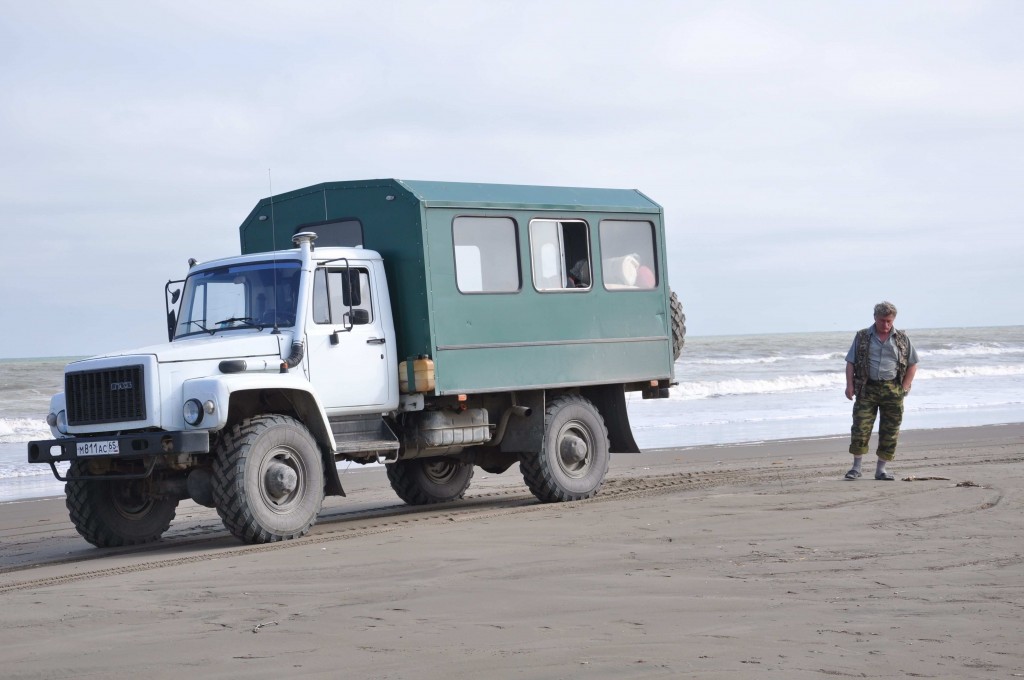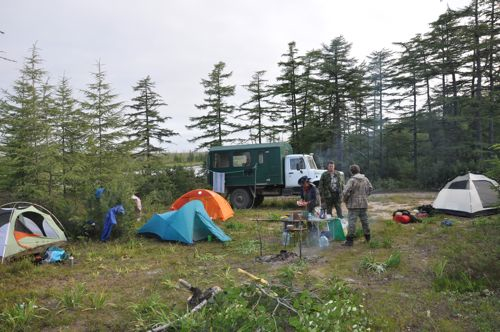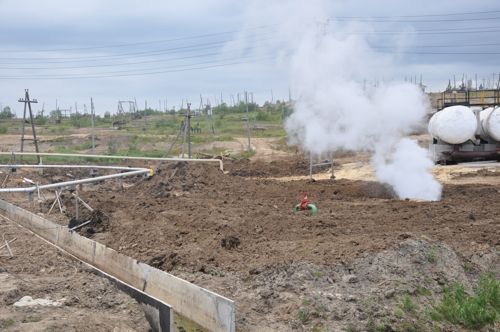We are currently finishing our first leg of field research on Sakhalin Island, Fareast Russia, and today we are traveling to Vladivostok to stage the next two weeks of sampling climate-sensitive trees. This is collaborative Wooster project funded by NSF with Kevin Anchukaitis (Woods Hole Oceanographic Institute) and Rosanne D’Arrigo (Lamont-Doherty Earth Observatory). Our Russian collaborators include Olga Solomina (Russian Academy of Sciences), researchers Ekaterina Dolgova; Eugenio Grabenko Vladimir Matskovsky, Tatiana Maratovna Kouderina and our host on Sakhalin, Yury Gensiorovskiy. Future Wooster student projects will include work on the Kamchatka Peninsula, the Sikhote-Atlin Mountains and the Kurile Islands.

The group split into two teams to find old and climate sensitive trees on the Island. My group traveled with Victor (above) who ably drove us in the Gas66. Here Victor takes a break on the shore of the Sea of Ohotsk.

Tatiana (originally from Kazakstan) cores a an old larch in a sea of Pinus Pumulus. This site is on the northern most part of the island – the Smit Peninsula.

Camp near Nogliki. Olga and I sampled the larch site near here ten years ago and the group updated this important site by re-coring the trees.

This view is of the many pump jacks and oil wells near Oxa. There are many strong landscapes on the island attesting to an extreme history of logging, oil and gas, fire and political upheaval. In spite of this there are many pockets of old growth forests remaining in beautiful settings.

The large of local foods including a full range of sea food makes for excellent dinners after a long day.




Nice! So Russian, especially that Gas66. Those fresh fish must be delicious.